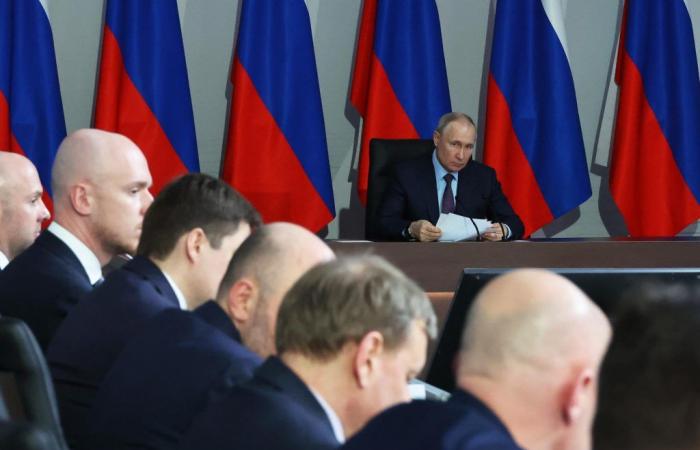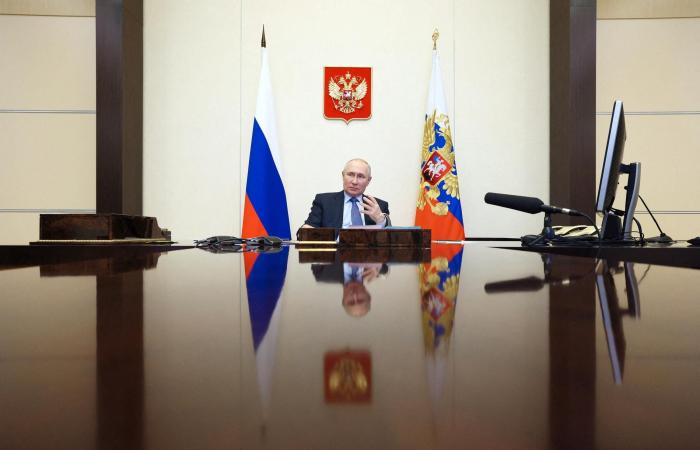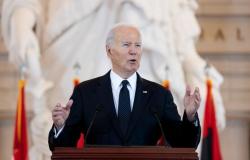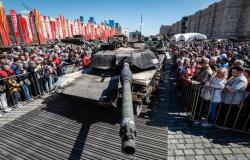New leaked documents reveal how the Kremlin can use political manipulation to weaken the West and NATO in the Baltic Sea.
Less than 20 minutes ago
Updated just now
- Leaked documents show Russia’s strategy to weaken the West and NATO in the Baltic Sea through political manipulation.
- The Kremlin plans to use climate change as a pretext to force Baltic countries into dialogue and demilitarize the region.
- The documents were written by the Directorate for International Cooperation and sent to President Putin’s administration.
- The strategy is called the “Baltic platform” and will implement Putin’s foreign policy.
- The Kremlin proposes to exaggerate environmental problems in the Baltic Sea in order to demand dialogue and create cooperation.
- Estonia’s security service claims that using climate as a cover is a known Russian method.
view more
During the night to Wednesday, a number of documents, which show the Russians’ strategy against the Baltic countries, were leaked from the Kremlin.
Now VG can reveal the content of the leak, which is also being investigated and discussed in a number of cooperating European media on Thursday. Together with Delfi, VG has gained access to the documents via the collaboration.
The document describes how the Kremlin, under the pretext of climate change, can force The Baltic Sea The Baltic SeaThe Baltic Sea is an inland marginal sea in Northern Europe between Sweden, Finland, Russia, Estonia, Latvia, Lithuania, Poland, Germany and the Danish islands (SNL).– the countries for dialogue.
In reality, the Kremlin will use the dialogue to weaken NATO and the West in the countries around the Baltic Sea – and at the same time demilitarize the region.
Last year, NATO chief Stoltenberg announced an increased presence precisely in the Baltic Sea after Russia’s invasion of Ukraine.
The documents were written by the Directorate for International Cooperation as recently as January this year. The recipient is Russian President Vladimir Putin’s administration.
The strategy has been named “Baltic platform” and has been prepared to implement Putin’s foreign policy.
This is how Russia can influence
In the document, the Russians place a lot of emphasis on the fact that they have been isolated and banned from international cooperation as a result of Western sanctions and “geopolitical unrest”. Mainly since February 24 February 24When Russia invaded Ukraine. last year, but also since 2014 2014When Russia annexed the Crimean peninsula and parts of eastern Ukraine. .
The Russians point to «the ecology the ecology The science of the relationship of organisms to the environment (SNL).in the Baltic” as perhaps the only area that is not “steeped in politics” and where all countries in the region have common interests.
Here, Russia can achieve humanitarian cooperation, the Kremlin is told in the document. The Russians believe that they can use the Baltic Sea to force the West into dialogue:
“In working with environmental issues, it is possible to use the dramatization method.”
The directorate suggests exaggerating individual problems in the Baltic Sea and projecting catastrophic scenarios in order to demand dialogue and mentions two concrete examples:
Nemunas River Nemunas RiverFlows through Latvia, Belarus and Russia. and Daugava River. Daugava River.Flows through Lithuania, Belarus and Russia.
The Kremlin is told that there is a significant risk of pollution in the rivers – something that is natural to discuss between the countries.
“The greatest potential for dialogue is the conservation of biological diversity in the Baltic Sea and the problem of industrial and other man-made pollution,” according to the document.
At the same time, the Directorate for International Cooperation believes that there is potential for cooperation with Baltic Sea Center Baltic Sea Center Researcher in the Baltic Sea.at the University of Stockholm.
Expressen has spoken to manager Tina Elfwing for Östersjöcentrum.
– We have not found any evidence that we have been approached, she says.
– It is so damned outrageous and unpleasant to be listed in such a document, she says.
At the same time, she is open that it would be natural to contact the center in a collaboration about the ocean and the environment.
Known method
Thomas Rid is a professor of strategic studies at Johns Hopkins and an expert on Russian influence.
– This sounds very much like old-fashioned “active measures”, he says to VG.
He reserves the right to say that he himself has not read the document.
– Historically, such proposals for campaigns would be prepared by embassies with local, cultural and regional knowledge and then edited and authorized in Moscow, he says.
Rid points out that such disinformation campaigns ideally abuse a real concern and aim to reinforce and real narratives used by ideologically committed activists.
Aleksander Toots, deputy head of Estonia’s security service, tells Yahoo News that using climate as a cover is a known Russian method, which helps them build credible cover stories for their sources.
– Using this method, they can collect information under a specific cover, in other countries. Later, the intelligence services will decide when and how they can use it most effectively, he says.
The strategy contains a concrete plan for how the “Baltic platform” can be brought to life – including through a series of seminars.
The start phase is from January and March this year, but the plan extends all the way to 2030.
The media collaboration has spoken to various independent sources in European intelligence, who confirm the content of the documents.
The revelations are a collaboration between Expressen, Dossier Centre, Re:Baltica, Frontstory, Vsquare, Lithuania’s national broadcaster, Yahoo! News, Süddeutsche Zeitung, WDR & NRD and Kyiv Independent.
Published: 27/04/23 at 23:03
Updated: 27.04.23 at 23:15
Tags: Leaked Kremlin documents climate change weaken NATO Baltic Sea
-






